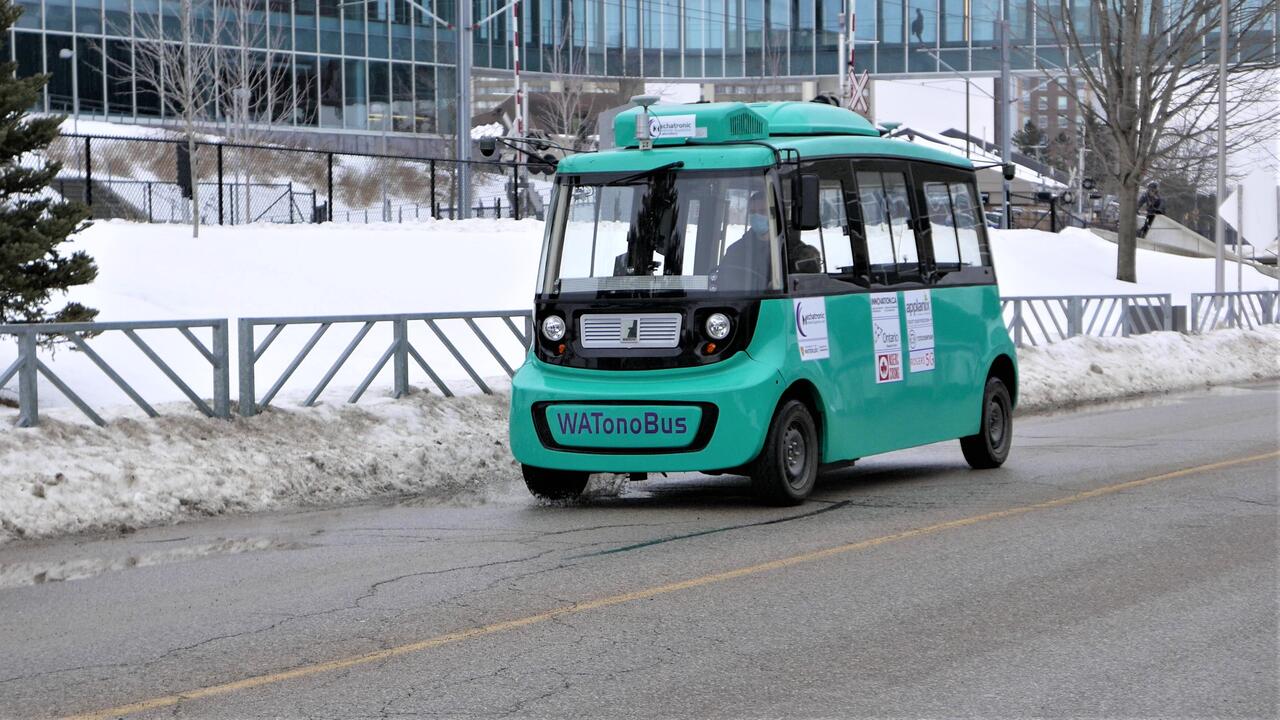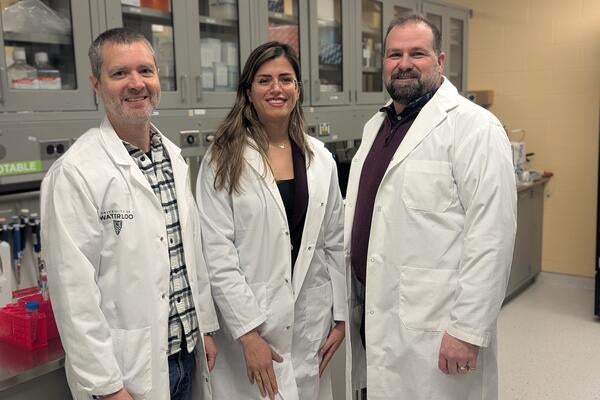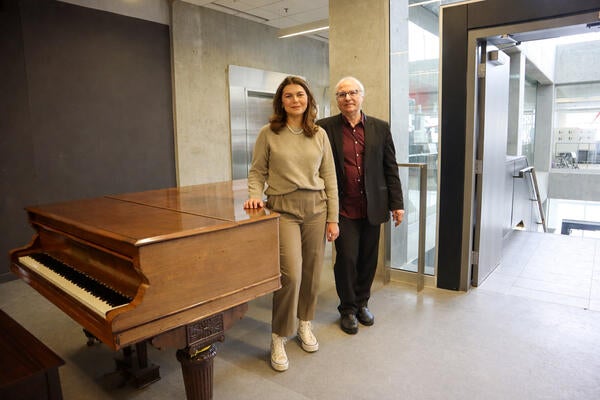
Self-driving shuttle bus coming to campus
Engineering research team expects free service to be operating on the Ring Road by this fall

Engineering research team expects free service to be operating on the Ring Road by this fall
By Brian Caldwell Faculty of EngineeringA self-driving shuttle bus - the first at any academic institution in Canada - could be operating on the Ring Road at the University of Waterloo by the time students return to campus for in-person classes as COVID-19 restrictions ease.
A research team led by Amir Khajepour, a professor of mechanical and mechatronics engineering, has spent four years and well over $1 million on the autonomous bus project, dubbed WATonoBus, and is now doing final testing to ensure it can handle winter weather.
“We’re hoping that when students come back to campus, whether that is in September or earlier, this shuttle bus will be ready to provide a needed service,” Khajepour said. “Students will be able to take the LRT train to campus, then take our bus to any part of campus.”
Although it will initially operate with an on-board driver ready to take over the controls if needed, the electric, eight-seat bus can already navigate the 2.7-kilometre Ring Road route on its own, including stopping at intersections, merging with traffic and avoiding obstacles such as pedestrians and cyclists.
The free service will include a smartphone app so users know when a bus in scheduled to arrive at the five stops located along the route.
Instrumentation enabling the bus to drive itself includes three LiDAR units, cameras on its front, back and sides, and wireless communication systems.
“The idea is to make it as robust and reliable as possible, meaning that if any system for any reason fails, other systems are ready to help the bus safely drive and, if necessary, execute a safe stop,” said Khajepour, a Canada Research Chair in Mechatronic Vehicle Systems and the GM/NSERC Industrial Research Chair in Holistic Vehicle Control.
The research team numbers about 20 graduate students, post-doctoral fellows, research associates, technicians and professors at any given time.
They are working with five buses – one now in testing, two being fitted with instruments and two more to be equipped once the others are operational – and there are preliminary plans to extend the service to the David Johnston Research and Technology Park just north of campus.
Khajepour said several municipalities are interested in the project and the underlying technology could be used for autonomous shuttle services at airports, resorts and on city bus routes.
There is also potential in fields such as mining and manufacturing – basically anywhere vehicles run on fixed routes or in known environments that can be meticulously mapped to ensure safety.
“There are many pieces that are coming together and we’re hoping this shuttle bus will become part of much larger research activities,” Khajepour said.
The system must still receive approval to operate, and testing and data collection will continue once it is in operation. Ultimately, the plan is to replace the on-board backup driver with someone monitoring the bus remotely.
Federal and provincial funding for the WATonoBus project has been provided through the Canadian Foundation for Innovation (CFI), the Ontario Research Fund (ORF) and the Natural Sciences and Engineering Research Council (NSERC).
Industry sponsors including Applanix, RoboSense LiDAR and Rogers Communications have also provided equipment and technical support.
For more information about engineering research at the University of Waterloo, please visit Waterloo Engineering Research.

Read more
Researchers engineer bacteria capable of consuming tumours from the inside out

Hand holding small pieces of cut colourful plastic bottles, which Waterloo researchers are now able to convert into high-value products using sunlight. (RecycleMan/Getty Images)
Read more
Sunlight-powered process converts plastic waste into a valuable chemical without added emissions

University of Waterloo researchers Olga Ibragimova (left) and Dr. Chrystopher Nehaniv found that symmetry is the key to composing great melodies. (Amanda Brown/University of Waterloo)
Read more
University of Waterloo researchers uncover the hidden mathematical equations in musical melodies
The University of Waterloo acknowledges that much of our work takes place on the traditional territory of the Neutral, Anishinaabeg, and Haudenosaunee peoples. Our main campus is situated on the Haldimand Tract, the land granted to the Six Nations that includes six miles on each side of the Grand River. Our active work toward reconciliation takes place across our campuses through research, learning, teaching, and community building, and is co-ordinated within the Office of Indigenous Relations.